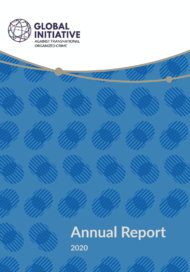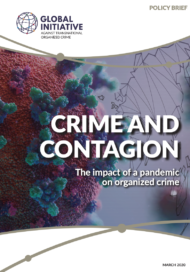Posted on 21 Dec 2020
In the wake of the pandemic caused by the coronavirus, the illicit economy has changed: the contours of trafficking have altered, though perhaps only for the immediate term; criminal groups are consolidating legitimacy through the provision of services; opportunistic criminal enterprises are springing up in response to new demand, social distancing, and prohibitions; illicit money has permeated sectors of the economy that have been closing down in the increasingly acute global recession.
Organized crime has strengthened during the pandemic, while global governance and the rules-based order have suffered. Over the course of the year, through both our expert and field networks, the Global Initiative Against Transnational Organized Crime (henceforth ‘GI-TOC’) has sought to analyze the changing political economy of crime, presenting new data and trends, as well as policy pieces intended to spark new thinking and debate. In doing so, we, like many others, have tried to make a contribution to building a better world in the wake of the pandemic. The GI-TOC moved rapidly when the pandemic hit, looking to understand its impact on organized crime. Eight reports, 12 weekly newsletters and the launch of a new podcast series on COVID-19-related issues were produced. We attracted significant media coverage, expanded our audience basis, and received much positive feedback and requests from partners and stakeholders for additional briefings and information. These efforts demonstrated our agility and responsiveness, highlighted our expertise and resulted in real impact for the organization.




